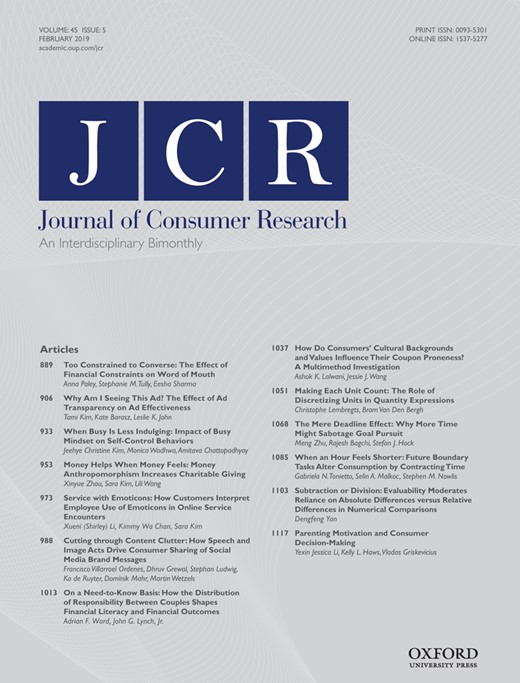-
Views
-
Cite
Cite
Meng Zhu, Rajesh Bagchi, Stefan J Hock, The Mere Deadline Effect: Why More Time Might Sabotage Goal Pursuit, Journal of Consumer Research, Volume 45, Issue 5, February 2019, Pages 1068–1084, https://doi.org/10.1093/jcr/ucy030
Close - Share Icon Share
Abstract
Contrary to the common belief that having more time facilitates goal pursuit by allowing for more flexibility and fewer restrictions, the current work argues that long deadlines may produce unintended detrimental consequences on goal pursuit. In particular, this research identifies a mere deadline effect, showing that longer versus shorter deadlines, once imposed, lead consumers to infer that the focal goal is more difficult, even when the deadline length results from incidental factors that cannot be meaningfully used to make any other diagnostic inferences about the task itself besides completion frame. Further, these difficulty inferences consequently lead consumers to commit more resources (e.g., time and money). Thus, while long incidental deadlines might be beneficial for essential yet often underestimated aspects of long-term well-being (e.g., when consumers exert more effort to save for college and plan for retirement), the unintended difficulty perception arising from deadline length will sometimes sabotage goal pursuit (e.g., when consumers commit more resources that are beyond their capability, and when elevated resource estimates lead to increased procrastination and higher likelihood of quitting).



